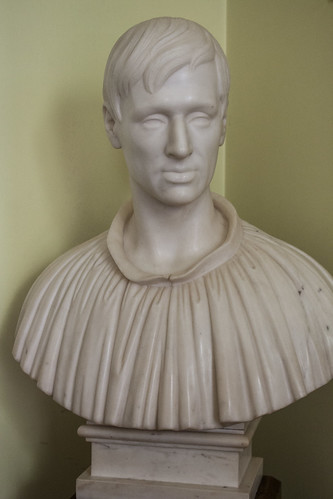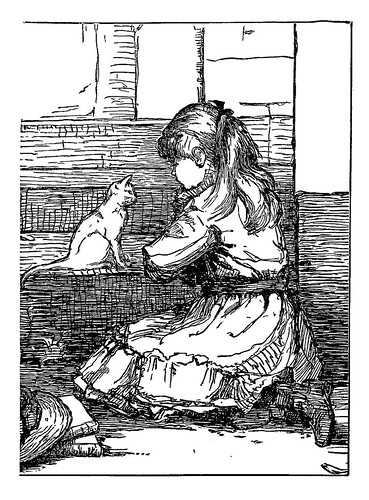Some virtues are prized by pretty well all societies and cultures. Courage, for example. Perseverance. Gentleness – not so much. In fact, it is prone to being considered a weakness. Even in cultures that do place a value on gentleness, it’s often only valued in certain people – women and girls, for the most part. With guys, the word “gentle” is generally only used when followed by the word “giant” – it seems that it’s ok to be gentle only as long as you’re huge enough that everyone knows it’s a choice.
 This is wrong on two levels. First, the idea that it’s good to not be gentle. This suggests that it is good to be the opposite of gentle: aggressive, harsh and demanding; strident. I don’t know about you, but I can’t think of a single person I like, admire or respect who demonstrates those qualities. The second mistake is to think that gentleness is the same thing as weakness – the puny of this world making a virtue of necessity.
This is wrong on two levels. First, the idea that it’s good to not be gentle. This suggests that it is good to be the opposite of gentle: aggressive, harsh and demanding; strident. I don’t know about you, but I can’t think of a single person I like, admire or respect who demonstrates those qualities. The second mistake is to think that gentleness is the same thing as weakness – the puny of this world making a virtue of necessity.
Gentleness and its twin, meekness, though often mistaken for weakness, can only exist in the presence of strength, whether strength of muscles, mind, heart, voice or anything else. Meekness is strength not wielded. The weak cannot be gentle, only feeble. Those who don’t possess any strength don’t need to be gentle, because they can’t do any damage if they try. It is the strong who must be gentle with the weak, not vice versa.
Of course, there is more than one kind of strength. A person whose body is weak, but whose tongue is a weapon of mass destruction is not gentle, regardless of how feeble they present themselves as being. A coward is not truly gentle, because they don’t have the guts to be anything else: there is no strength which they are holding in check.

Gentleness is not weakness. It is a form of strength. “Oh! that gentleness! how far more potent is it than force!” wrote Charlotte Brontë in Jane Eyre. Of course, like so many virtues, it can be misused – the above quote comes from the passage where (spoilers!) St. John Rivers is attempting to persuade (one might almost say blackmail) Jane into marrying him – not because he loves her, but because he thinks she’ll be useful. (It was this that earned him a spot on the list of People I’d Like to Smack Upside the Head.)
But Jane is both gentle and indomitable – the two are not mutually exclusive, but complementary. Like Fanny Price, Jane would face down an army if she had to. Gentleness is not weakness. It may not push its agenda with force, but that doesn’t mean it will give way, either. Gentleness can charmingly, politely, say no – and keep saying it. “Now for the hitch in Jane’s character,” Rochester says when she won’t give way to him. “Now for vexation, and exasperation, and endless trouble!” She is gentle, but inexorable, and she carries her point. As he himself points out, he could kill her – he has the strength for it – but he can’t make her do what he wants. And fortunately for her, his love for her makes him keep his strength in check: it gentles him.
 Gentleness doesn’t always get you what you want, though – if it did, it would just be a means of manipulating others. A gentle answer proverbially deflects anger, “but in desperate hours gentleness may be repaid with death,” Denethor warns his unloved second son. ‘”So be it,” said Faramir.’
Gentleness doesn’t always get you what you want, though – if it did, it would just be a means of manipulating others. A gentle answer proverbially deflects anger, “but in desperate hours gentleness may be repaid with death,” Denethor warns his unloved second son. ‘”So be it,” said Faramir.’
That is the essence of gentleness: doing what you believe to be right with every courtesy and consideration towards others. Gentleness is a difficult opponent to beat, because it won’t fight. It is true that gentleness can be repaid with violence, or even death, but the antagonist will always be seen to be in the wrong. And the gentle will not yield.











